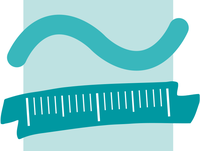Beuth University: Prototype for a medication app
For the Beuth University, we develop a prototype for a medication app.
The app is intended to improve the safety of the medication and in particular in the monitoring of ingestion rhythm and the knowledge of side effects and influences.
Not only the patients themselves should be able to use this app, but also relatives and caregivers.
In fact, there are already many apps that promise to meet the requirements. However, with more detailed research, they have significant shortcomings.
Professional quality
The professional quality of other apps is rarely discernible and, if the few reviews are taken as a basis, is usually very low. This is all the more problematic when apps promise to point out interactions and double prescriptions for medications with similar effects. For customers who rely on the fact that their app will warn them of dangers, for example with their self-medication requests, are likely to be at serious risk.
User groups
The apps also very rarely provide information about their user groups, neither about
- Suitability for specific diseases/conditions
- Suitability for gender, special age groups (or areas) etc.
- Suitability for certain health professions and settings: clinical, outpatient, at home, …
- Suitability for physiological and physical impairments, also not the support for TalkBack for Android and VoiceOver for iPhone.
- Support for country-specific drugs and pack sizes
Privacy
The handling of user data is usually poor. The data protection declarations usually leave customers unclear as to what happens to their information. This is all the more problematic since over 80% of the apps transfer data to infrastructure providers such as Google, Facebook etc. Not even the encrypted transmission of user data was always guaranteed, especially not when data was transmitted by email. The few independent test procedures are unlikely to contribute to clarification, since they mostly rely on self-assessment.

